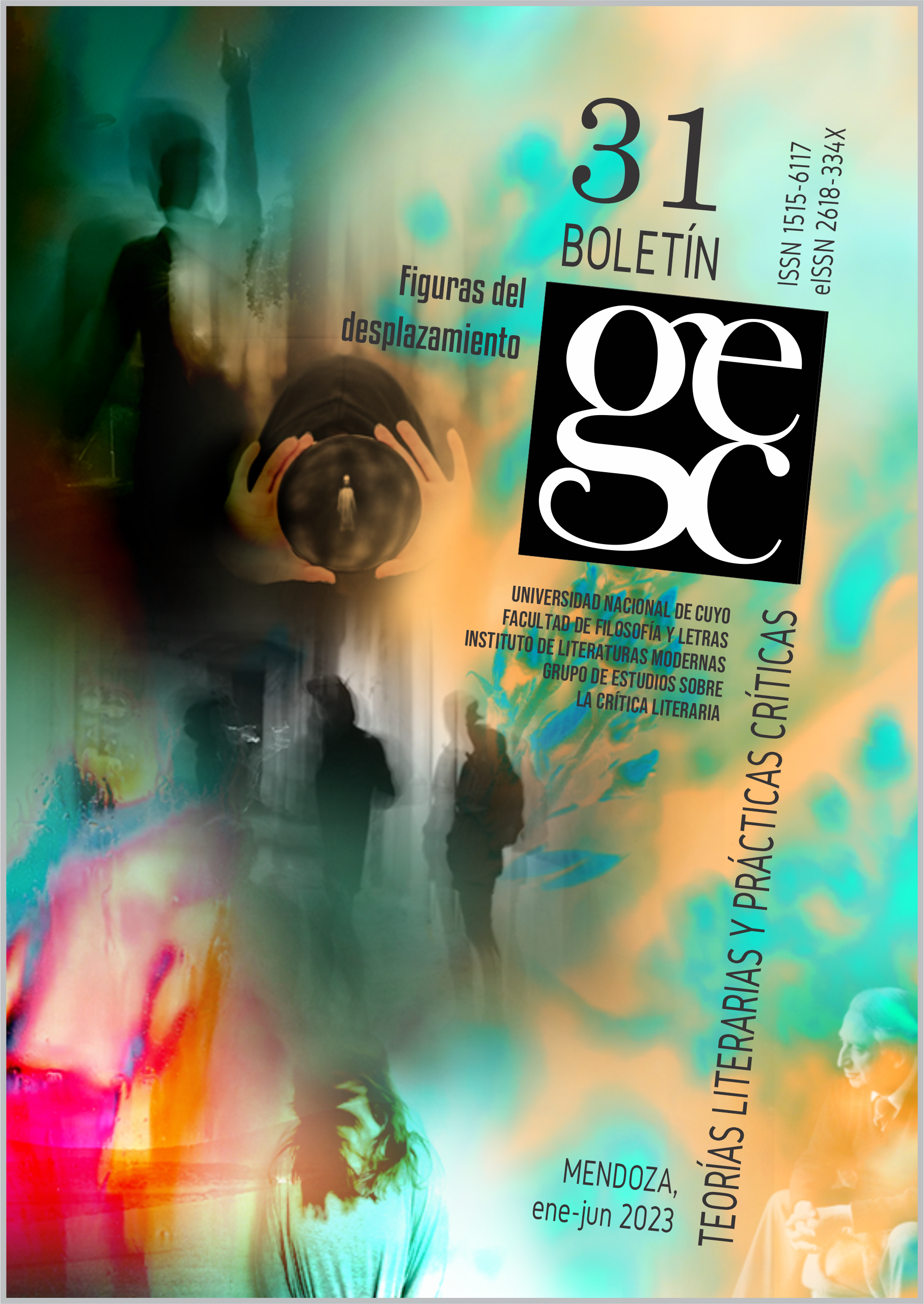Displacements between Lesson and Research: Notes on a Barthes teacher of literature
DOI:
https://doi.org/10.48162/rev.43.036Keywords:
literature, doxa, research, teachingAbstract
This article intends to provide a possible route on a group of texts by Roland Barthes and his ethical, didactic and theoretical postulates about participation in academic spaces of teaching and research. As a basis, the notions belonging to the seminar How to live together: Novelistic simulations of some everyday spaces are taken as a structuring axis that includes interviews, articles and other material related to the French semiotician. As a displacement, the reflections that Barthes proposes on the university incur in an elusive figure that puts in tension the conventional categories of the teacher and researcher as a place of power. On the contrary, his arguments tend to decentralize these categories in order to question the spaces of knowledge as doxa and law. Whether from the methodological use of arbitrariness to approach a text or even to give place to the dimension of desire to investigate or sustain a classroom, each of these practices involves a community of readers rather than the disciplining presence of institutions. This article is a reflection on the ways of inhabiting the university and the language and literature classrooms both at the secondary and university levels.
References
Amigo Pino, Claudia (2020). “La didactique magique de Roland Barthes. Les séminaires expérimentaux à l’ École des Hautes Études en Sciences Sociales”. French Forum, n. 2. 239-254.
Amigo Pino, Claudia (2022). Apprendre et Désapprendre. Les séminaires de Roland Barthes (1962-1977). Ottignies-Louvain-la-Neuve: Éditions Academia.
Barthes, Roland (1975). Roland Barthes por Roland Barthes. Buenos Aires: Eterna Cadencia.
Barthes, Roland (1976). “Los jóvenes investigadores”. En El susurro del lenguaje. México: Siglo XXI. 103-110.
Barthes, Roland (1978). “Lección inaugural de la cátedra de Semiología Literaria del Collège de France”. En El placer del texto, seguido por Lección inaugural. México: Siglo XXI. 91-122.
Barthes, Roland (1982). “En el seminario”. En Lo obvio y lo obtuso. Imágenes, gestos, voces. Barcelona: Paidós. 337-347.
Barthes, Roland (2003). Cómo vivir juntos: Simulaciones novelescas de algunos espacios cotidianos. Buenos Aires: Siglo XXI.
Barthes, Roland (2005). El grano de la voz: Entrevistas 1962-1980. Buenos Aires: Siglo XXI.
Dalmaroni, Miguel (2013). “El dios alojado. Enseñar a enseñar literatura: notas para una ética de la clase”. Educación, lenguaje y sociedad, vol. 10, n. 10. 128-156. Disponible en: https://cerac.unlpam.edu.ar/index.php/els/article/view/1482
O’Meara, Lucy (2012). Roland Barthes at the Collège de France. Londres: Liverpool University Press.
Simón, Gabriela (2010). Las semiologías de Roland Barthes. Córdoba: Alción.
Downloads
Published
How to Cite
Issue
Section
License
Copyright (c) 2023 Eric Hernán Hirschfeld

This work is licensed under a Creative Commons Attribution-NonCommercial-NoDerivatives 4.0 International License.
Aquellos autores/as que tengan publicaciones en esta revista, aceptan los términos siguientes:
- Los autores/as conservarán sus derechos de autor y garantizarán a la revista el derecho de primera publicación de su obra, el cual estará simultáneamente sujeto a la Licencia de reconocimiento de Creative Commons que permite a terceros compartir la obra siempre que no se use para fines comerciales, siempre que se indique su autor y su primera publicación en esta revista, y siempre que se mencionen la existencia y las especificaciones de esta licencia de uso.
- Los autores/as podrán adoptar otros acuerdos de licencia no exclusiva de distribución de la versión de la obra publicada (p. ej.: depositarla en un archivo telemático institucional o publicarla en un volumen monográfico) siempre que se indique la publicación inicial en esta revista y se cumplan las otras condiciones mencionadas arriba.
- Se permite y recomienda a los autores/as difundir su obra a través de Internet (p. ej.: en archivos telemáticos institucionales o en su página web) antes y durante el proceso de envío, lo cual puede producir intercambios interesantes y aumentar las citas de la obra publicada. (Véase El efecto del acceso abierto).








